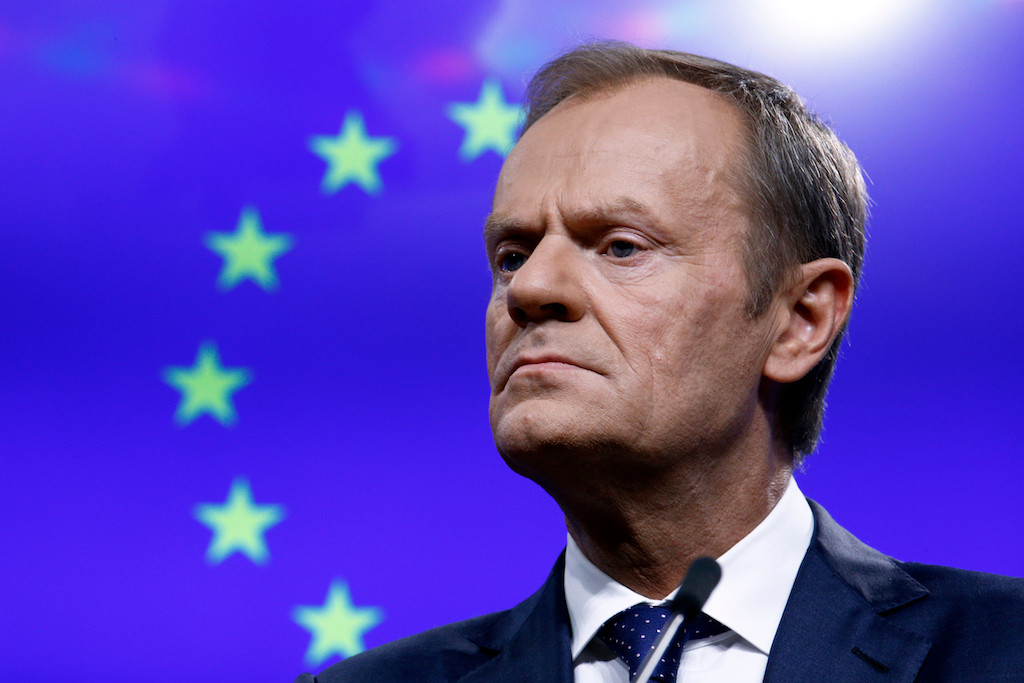A joke went round social media in the wake of this week's backlash against the president of the European Council. “Liam Neeson owes Donald Tusk at least a pint”, tweeted LBC radio talk show host James O’Brien tweeted on Wednesday morning.
The fact that Tusk’s “special place in hell” quote had deflected from the outrage against Neeson is telling. It tells us that the attention span of the media and social media is very short. And it tells us that the morally outraged--the “delicate flowers”, as the speaker of the British parliament John Bercow so succinctly put it--instantly jump on the words they want to hear to feed their indignation rather than take time to listen carefully and appraise what has actually been said in its proper context.
Take Tusk’s statement, for instance. Most of the headlines claimed he had said there was a “special place in hell” for Brexiteers--the inference being that he was judging anyone who is in favour of the UK leaving the European Union. But what Tusk actually said was “I’ve been wondering what the special place in hell looks like for those who promoted Brexit without even a sketch of a plan of how to carry it out safely”. That is a very specific group that Tusk is targeting. It is aimed at the likes of politicians Boris Johnson and Nigel Farage, who sat back once the result the referendum result they wanted was confirmed and contributed nothing positive to the debate on how the UK should leave the European Union. It includes the millionaire Aaron Banks who backed the Leave.EU campaign that was later found to have broken electoral law.
Wilfully disingenuous
Indeed, when MPs like Peter Bone say Tusk's words were an insult to members of parliament, the British government and the British people, he is being wilfully disingenuous. Anyone who feels insulted by the actual words Tusk said, rather than by the misleading headlines in the British media, is admitting that they really did not have a “sketch of a plan” on how to carry out Brexit.
As Martin Kettle in The Guardian puts it, Tusk may not have gone far enough. Kettle says here “should be an executive suite of sleepless torment for those politicians who promoted Brexit without ever giving a stuff about Ireland.” The Brexit advocators also didn't give a stuff for those people who had no say in the vote, but will bear the brunt of the consequences--EU citizens who live in Britain and British citizens who have made their home in an EU member state.
As for Neeson, his words were of embarrassment at his former self, the sort of man who would seek out a black man to take revenge on his friend who had been raped. “It shocked me, this primal urge I had. It shocked me. It hurt me,” he said. Those labelling Neeson a racist and cancelling red carpet events should reflect on their actions. If they are so swayed by the faux moral backlash from delicate flowers--or snowflakes, as they are more commonly known--and cannot accept that a person can show genuine contrition over their past mistakes, then the world is in a sorry state. Thankfully Whoopi Goldberg and John Barnes defended Neeson.
Barnes even said, “It's been spun…if you want to think about what he's actually saying, the context.” This is exactly what we should all be doing before we take to Facebook or Twitter in attack mode. Whether it is a famous actor admitting shame at past racist thoughts or Maga hat wearing high school students encountering a Native American elder, we need to sit back, reflect and see the whole picture before we comment.
